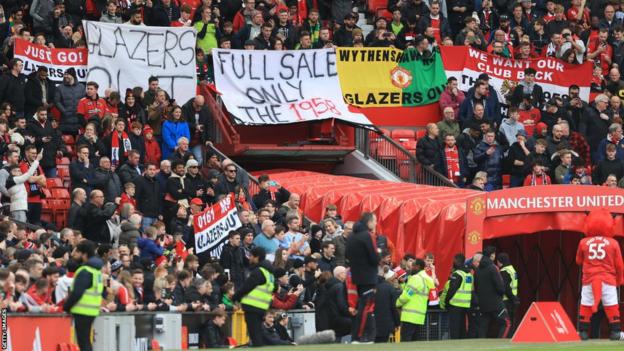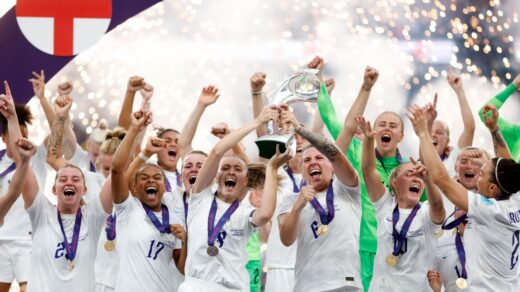
Manchester United owe £969.6m through a combination of gross debt, bank borrowings and outstanding transfer fees with associated payments, according to new figures.
The club released its second quarter results to 31 December on Thursday.
Unlike previous years, there was no investors call afterwards as a direct result of the ongoing “strategic review”.
This could lead to the sale of the Premier League club.
The review itself is centred around how to meet the club’s long-term capital investment needs, specifically for improvements to Old Trafford and the club’s Carrington training ground, and – it is being stressed – is not due to any issues with short-term liquidity.
Nevertheless, the amount the club owes has grown.
While the principal debt remains at $650m, a change in the exchange rate meant the club owed £535.7m compared to £477.1m at the same point in the previous year.
In addition, £206.2m has been taken from a rolling credit facility, with another £227.7m owed in outstanding transfer fees. The club did have £31m in cash or equivalent, but the overall sum remains just short of £1bn.
BBC Sport has been told the figures are evidence of a “stretched” financial situation, although it is being stressed that this has already changed for the better, due to bumper matchday revenues and impressive season ticket sales – and they expect that to continue.
Indeed, in posting profits of £6.3m for the quarter, United have also revealed sponsorship revenue has increased 43.2% to £50.4m over the prior quarter. The club said this was due to the impact of its training kit agreement with Tezos, plus a ‘one-off sponsorship credit’, which it has opted not to detail.
Wages were down £20.4m to £77.3m, a decrease of 20.9% as Erik ten Hag’s team are not in this season’s Champions League.




